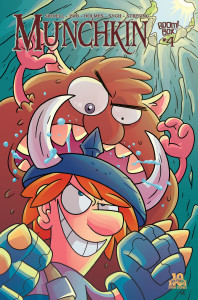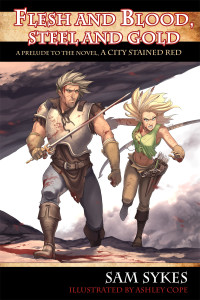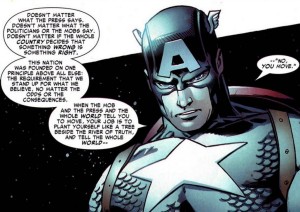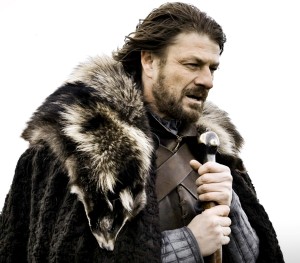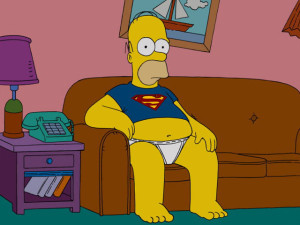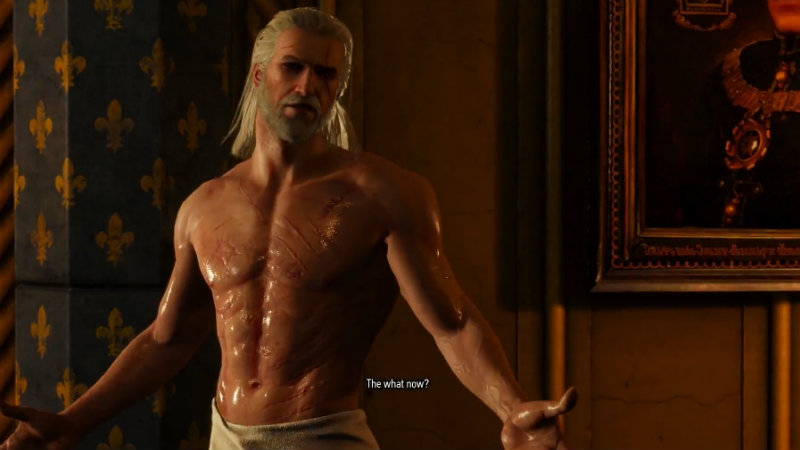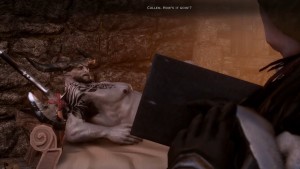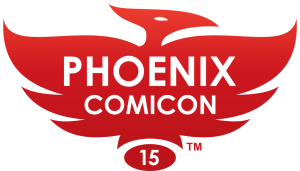So, before I say anything else, I want to say that Phoenix Comicon 2015 was a rousing, immense success.
The panels were fantastic. The panelists were even better. We sold out of our copies of The City Stained Red, which is tops. And, above all else, the fans were absolutely phenomenal. Phoenix Comicon is my very favorite show specifically because it’s where I find most of my readers and they’re all amazingly cheerful, happy to see me and complimentary.
Example? By the end of the convention, I had a small stack of cookies, bon bons, macarons and other confections that people had brought me. It’s actually probably pretty easy to assassinate me, given how much I enjoy getting baked goods at conventions, but I digress.
So, to that end, thank you to all who came. Thank you for supporting me in my writing. Thank you for supporting me at my panels. Thank you.
Given that I started by writing something positive, it probably feels like cheating that this blog post will be about something I have great difficulty talking about, but it can’t be helped. For as much fun as I had at the con and as big of a success as I considered it (and it was a huge success), there was a sore aspect that stuck out to me. It had nothing to do with the convention, just a random person in the audience.
During a panel, I was joking around with Myke Cole, as I often do. I can’t remember how it came up, but the subject of Tinder, the dating app, came up. From somewhere in the audience, some fellow shouted: “Sam seems more like a Grindr user to me.”
Grindr is like Tinder, except for gay dudes.
The panel kind of slid to a stop there. There were a few muted chuckles, but one of those dark silences that you usually hear right after a joke fails hung over the crowd for a moment. I was kind of thrown off my game by this comment.
Bear with me as I try to explain this.
It being implied that this fellow had suspicions that I was gay did not bother me. I’m pretty secure in my orientation and I’m perfectly happy that way. What bothered me was the fact that someone thought this was clever. Like, what if I was gay? What then? What would it matter? The joke didn’t really land because it wouldn’t make much sense outside of a group of fifteen year old boys shouting “LOL GAY” at each other in home room.
Given that I am not a fifteen year old boy, despite the humor I espouse, it didn’t really amuse.
I could have ground the entire panel to a halt to call it out, but I just moved on. We had a good time.
But it was weird.
Like, I wish I could say that this was the first time people have speculated on my sexuality to my face. But it’s not. And it’s not less weird each time it happens. It actually gets more weird because it’s a very peculiar situation that actually happens a lot. Not the sexuality speculation, but overstepping boundaries, in general.
For as much as I love social media, there’s times when it’s really wearing.
There’s times when I’ll write out a joke to my friends, stare at it, then delete it because I know someone else will read it, assume that because I’m joking about this to someone else, it is okay for them to joke about it with me.
There’s times when I’ll write out what I think is a pretty funny tweet, stare at it, then delete it because I know someone else will read it and make a painfully obvious joke that I was deliberately trying to avoid.
There’s when it’s very difficult to do social media.
And that’s because my fans are wonderful people. Not once has anyone ever made a joke that was intentionally malicious, hateful or savage in my direction. Not once has anyone said something that I would consider way over the line. And that’s what makes this so frustrating: it’s very rarely an intentional leap over the line, it’s usually just a toe or a step over the line.
And the line is hard to see sometimes.
There’s a lot of theories out there about the nature of being a public figure. Some say that being someone associated with an act, product or accomplishment dehumanizes you, however a little, in the eyes of an audience. Some say that this phenomenon, coupled with the way social media brings people closer together to creators, makes it easy to treat people like objects rather than people.
As for me, I think it’s just a matter of social boundaries being difficult to read.
Delilah Dawson agrees and wrote a pretty good piece on it.
That’s why this is difficult. And if I keep saying it’s difficult, it’s because it’s really that difficult. Hateful messages are pretty easy to deal with: you can block them and then move on. It’s the good-intentioned, poorly-executed overtures that are hard to handle.
You get lame jokes. You get really weird, overfamiliar, inappropriate commentary. Sometimes you get propositioned. And if you react to these, you don’t always get a sympathetic reaction from people.
Sometimes, they say: “So what? It’s just a joke!”
Okay, fair enough. I like jokes. I can appreciate good jokes. But here’s the thing about jokes: when a comedian does a joke and the audience is silent, he doesn’t start accusing the audience of having no sense of humor. He makes a note to work on that joke, then moves onto something funny.
And just because there is a joke doesn’t make it funny. And even funny jokes get old after a while. I mean, ask Wil Wheaton if he thinks “shut up Wesley” comments are funny.
Case in point: I love fan art. I absolutely adore my fans who feel moved enough by my work to put it into illustration. I’m in awe of their talent.
Yet I’m always reluctant to talk about it on twitter. Because, without fail, I will get someone who said: “LOL I MISREAD THAT AS ‘FART.'”
It is so lame. It is so old. It is such a lazy, stupid, awful joke. There’s nothing particularly offensive about it, it’s just been done so many times that I really have no patience for it.
A good friend of mine says he auto-blocks people who make obvious, old jokes. He says that if it’s obvious that he’s reaching past that joke, it’s disrespectful to make it. I’m not quite there, but I see what he means.
Sometimes, people say: “Well, you kind of have to expect some shit, being a public figure.”
And that makes me sad.
Like, I understand that reaction completely. I’ve overstepped tons of boundaries in my lifetime. I once commented on an author’s appearance–an author I barely knew–and they got pretty pissed at me. Which made sense: I didn’t know them well enough to make that comment. And sure, I had that flash of “it was just a joke, jeez.” But I realized that I was in the wrong there and I apologized.
And apologizing can be supremely scary.
I have always said there’s no shame in apologizing and I stand by that. But there can certainly be shaming in apologizing. The current rhetorical climate means that admitting fault is often the same as admitting vulnerability and you can be mocked, abused or threatened for doing so. It sucks.
But we move on.
And that’s why I’m not making sweeping proclamations, banging my shoe on a podium, calling for an end to fan interaction. Like I said, above all else, I love my fans. I love being close to them and I love that they can be close to me. That’s why I accept that, sometimes, we will overstep each other’s boundaries. This will happen.
All I’m saying is just be mindful.
Before you make a joke, ask yourself if it’s the kind of joke you’d make with someone you know well.
If you make a joke and it doesn’t land, remember there’s no shame in apologizing.
Most of the time, faux pas are just that: social accidents or mistake. If you’re acting with good in your heart, you will almost always be forgiven, and eventually your awesomeness will overwhelm the incident.
Also, the key to a good poop joke is to make it someone else’s hypothetical poop. Never refer to your poop or your audience’s poop. That’s just weird.
PROTIP.
